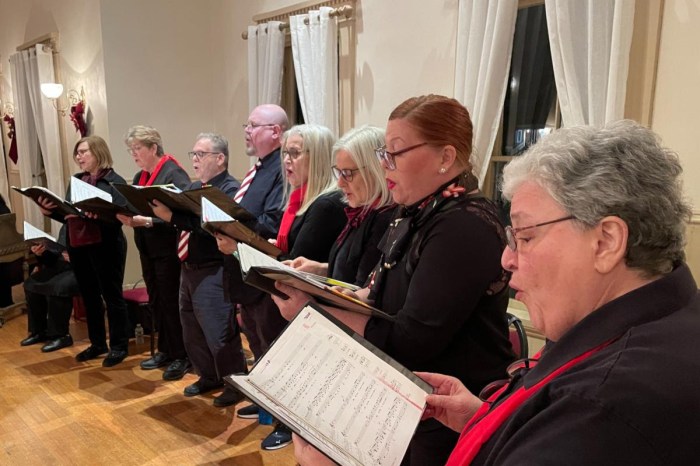By Ron Hellman
Do you want to be a star? Or perhaps more modestly, do you simply want to strut your stuff in community theater?
After taking a long break from acting to work as the producer of 50 plays for The Outrageous Fortune Company, I have been cast in my most significant role in more than two decades. So, it occurs to me that readers may appreciate an insight into a community theater production. My story, told in a few columns, may inspire you to join the ranks of community-theater actors yourselves.
The play is “You Can’t Take It With You,” the hit Broadway comedy of 1936 by George S. Kaufman and Moss Hart, which won a Pulitzer Prize and two years later was turned a movie, directed by Frank Capra, that won a Best Picture Academy Award.
Not a bad resumé—and it’s still a meaningful and funny entertainment today.
The company is The Parkside Players, one of Queens’ longest running groups, founded in 1971. They put on three shows a year in their home at the Grace Lutheran Church in Forest Hills.
Their longevity may be due to a number of factors: a friendly relationship with their landlord; a comfortable space that they can call their own; a core group headed by their president, Glenn Rivano; a requirement that members work on productions that they are not acting in; a different production team in charge of each show; and a reputation for quality.
The artistic leader of any production is the director, who guides the actors to bring his (or her) vision of the play to life. For “You Can’t Take It With You,” the director is Mark Dunn, a transplant from Fort Wayne, Ind., to Astoria, where he lives with his wife Bridget and their 2-1/2-year-old son. Now employed at a financial company in Midtown Manhattan, for a while he was part of a popular and growing occupation, stay-at-home dad.
Dunn has been acting for most of his life, and when directing he says, “I like to work in a manner that I would appreciate as an actor—trust and safety are big responsibilities of the director; communication and patience are the key.” In 2012, he directed Parkside’s production of another Kaufman and Hart play, “The Man Who Came To Dinner,” so he had the inside track for this one. He also dabbles in painting, drawing and playing music—check out the self-portrait in this column.
Audition notices for this show went out online and by mail, and the auditions took place on a Sunday afternoon and a Wednesday evening. Candidates filled out an audition sheet, indicating what roles they were interested in and what potential conflicts they had with the rehearsal schedule. Dunn was pleased with the turnout and the casting choices he was able to make, and a date was set for the “first read.”
That’s when the actors sat around a table and went through the entire play.
So far so good. Next time, meet the actors.
Contact Ron Hellman at rbhof



































